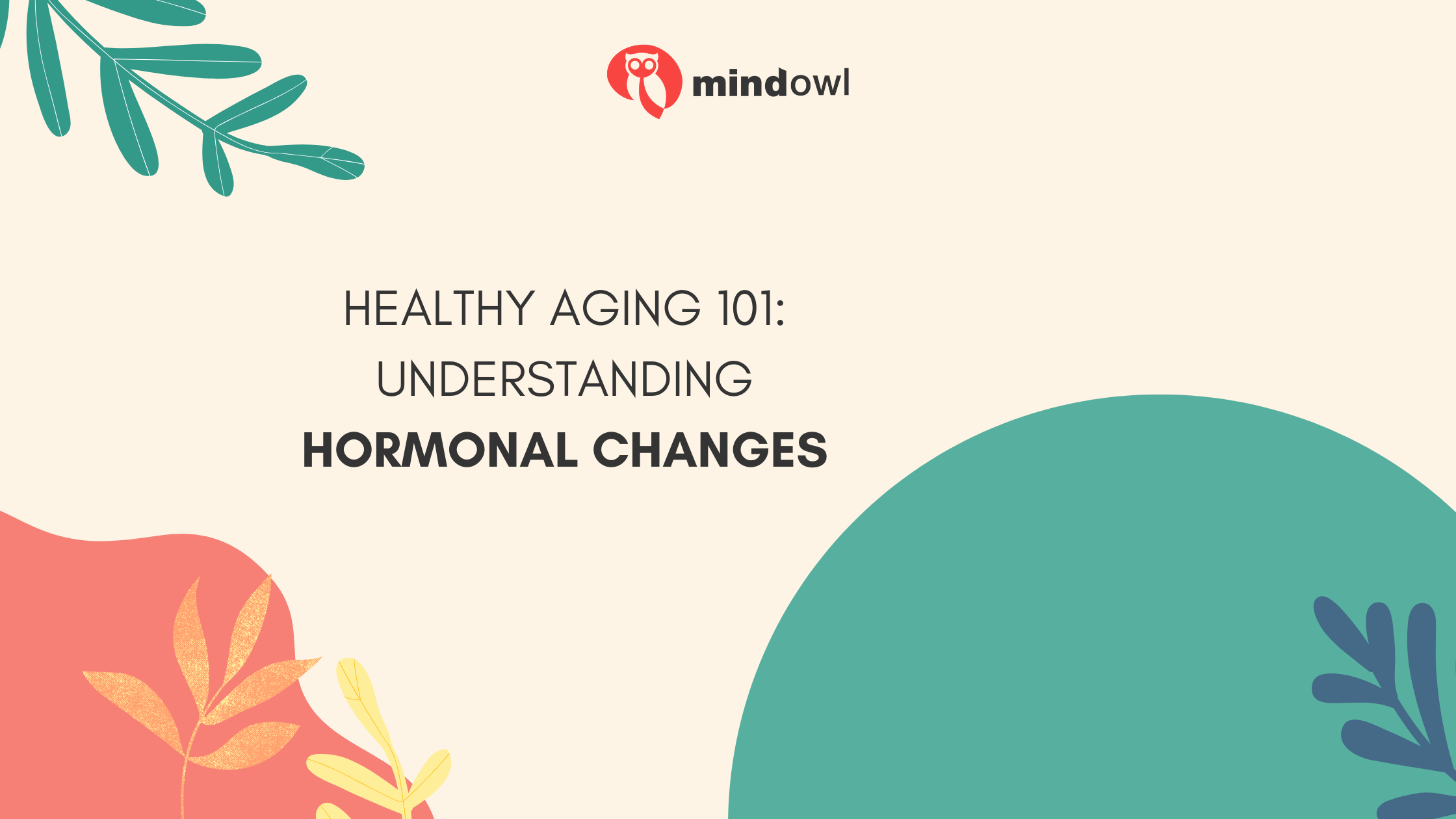
We’ve all noticed it: the gradual shift from youthful energy to a more measured pace. But why does our body change as we grow older? A big part of it is the way our hormones work.
Hormones are like the body’s messengers, telling different parts what to do. As we age, these messages start to change, affecting everything from our energy levels to our mood.
In this blog, we’ll break down the science of aging hormones, and see how we can make the most of this natural process.
The Role of Hormones in Our Bodies
Hormones are powerful chemical messengers produced by glands in our endocrine system. They travel through the bloodstream to different tissues and organs, delivering signals that help regulate bodily functions. Hormones play a role in many aspects of health, including metabolism, mood, energy, reproduction, and immune response.
Our bodies produce different levels of hormones based on our age, sex, and health needs. When hormones are balanced, they help the body function smoothly. But as we age, hormone production can naturally decline or fluctuate, which can impact the way we feel and how well our bodies operate.
Common Hormonal Changes with Age
As people get older, several hormones begin to decline, which can lead to noticeable changes in how we feel and function. Testosterone, estrogen, progesterone, and DHEA are some of the key hormones that change with age. For example, in women, estrogen and progesterone levels drop significantly during menopause, causing symptoms like hot flashes, mood swings, and sleep disruptions. In men, testosterone levels gradually decline, which may lead to reduced energy, muscle loss, and lower libido.
Some people seek treatments to manage these symptoms, such as bioidentical hormone replacement therapy. This type of therapy uses hormones identical to those produced by the body to help balance hormone levels and relieve symptoms related to aging.
Testosterone and Its Impact
Testosterone is a hormone associated with strength, muscle mass, energy, and libido. While it’s often thought of as a male hormone, both men and women produce testosterone. For men, testosterone levels tend to decline gradually with age, which can lead to a decrease in muscle strength, energy, and interest in activities, including sex. In women, lower testosterone levels may impact energy and mood.
Low testosterone can affect daily life, making it harder to stay active or motivated. Some people consider hormone therapies to help maintain more stable levels, which can help with energy and vitality.
Changes in Estrogen and Progesterone
In women, estrogen and progesterone levels drop significantly during menopause, usually occurring between the ages of 45 and 55. Estrogen helps maintain bone density, skin health, and mood stability, while progesterone has a calming effect and supports sleep. When these hormones decline, women may experience symptoms such as hot flashes, mood swings, trouble sleeping, and changes in bone health.
Hormone replacement therapies are available for those who experience severe symptoms. Bioidentical hormone replacement therapy, for example, offers an option that uses natural forms of these hormones to help alleviate symptoms and support overall health during menopause.
Cortisol and Stress Management
Cortisol, often called the “stress hormone,” helps the body respond to stress and regulate energy. As we age, our bodies can become more sensitive to stress, causing cortisol levels to rise or become imbalanced. Higher cortisol levels can lead to increased belly fat, mood swings, and sleep disruptions.
Managing stress through relaxation techniques, exercise, and healthy sleep habits can help balance cortisol levels.
Supporting Hormonal Health Through Diet
A healthy diet can go a long way in supporting hormonal health. Eating nutrient-rich foods provides the body with the building blocks needed for hormone production and balance. Foods high in omega-3 fatty acids, like salmon and walnuts, support brain and heart health, while leafy greens and berries offer antioxidants that fight inflammation.
Avoiding excessive sugar and processed foods is also important, as these can lead to blood sugar spikes and hormonal imbalances. A balanced diet helps regulate insulin, cortisol, and other hormones that contribute to overall well-being.
Exercise and Its Effect on Hormones
Regular physical activity plays a major role in maintaining hormonal balance. Exercise boosts endorphins, which are feel-good hormones that improve mood and reduce stress. Strength training also helps maintain muscle mass, which can be beneficial for testosterone levels, especially in older adults.
Exercise can also support better sleep, weight management, and energy levels. By staying active, you help keep hormones balanced, which in turn supports physical and mental health as you age.
Prioritizing Sleep for Hormonal Balance
Sleep is essential for hormone production and balance. Poor sleep disrupts the production of hormones like cortisol, insulin, and growth hormone, affecting mood, energy, and metabolism. Quality sleep also supports the immune system and mental clarity.
Ultimately, aging doesn’t have to mean losing vitality. Small choices and mindful adjustments can make a big difference in how we feel over time.
So, how will you support your body’s changes as you age? Healthy aging starts with thoughtful action today.
MindOwl Founder – My own struggles in life have led me to this path of understanding the human condition. I graduated with a bachelor’s degree in philosophy before completing a master’s degree in psychology at Regent’s University London. I then completed a postgraduate diploma in philosophical counselling before being trained in ACT (Acceptance and commitment therapy).
I’ve spent the last eight years studying the encounter of meditative practices with modern psychology.

